The preliminary DUMP-2019 program is ready. Speakers from Evil Martians, Tinkoff.ru, HTML Academy, SkyEng, 2GIS
Hello, Habr!
On April 19, in Yekaterinburg , the DUMP Developer Conference will be held for the ninth time . Reports will go in 8 sections: Backend, Frontend, Mobile, Testing and QA, Devops, Design, Science and Management. Plus master classes, dedicated areas for communication, activity from sponsors and afterparties.
The preliminary program includes 52 speakers, including Nikolai Sverchkov (Evil Martians), Vadim Makeev (HTML Academy), Artemy Ryabinkov (Avito), Alexander Korotaev (Tinkoff.ru), Alexander Khlebnikov (2GIS), Alexander Denisov (EPAM), Pavel Strelchenko (HeadHunter), Alexey Kataev (SkyEng), Alexey Zhukov (Kontur), Grigory Savenok (MegaFon), Sergey Krivoy (SEMrush), Alexandra Rudenko (Service Design Bureau). The final program will be ready by March 20. Under the cut - details of the program.
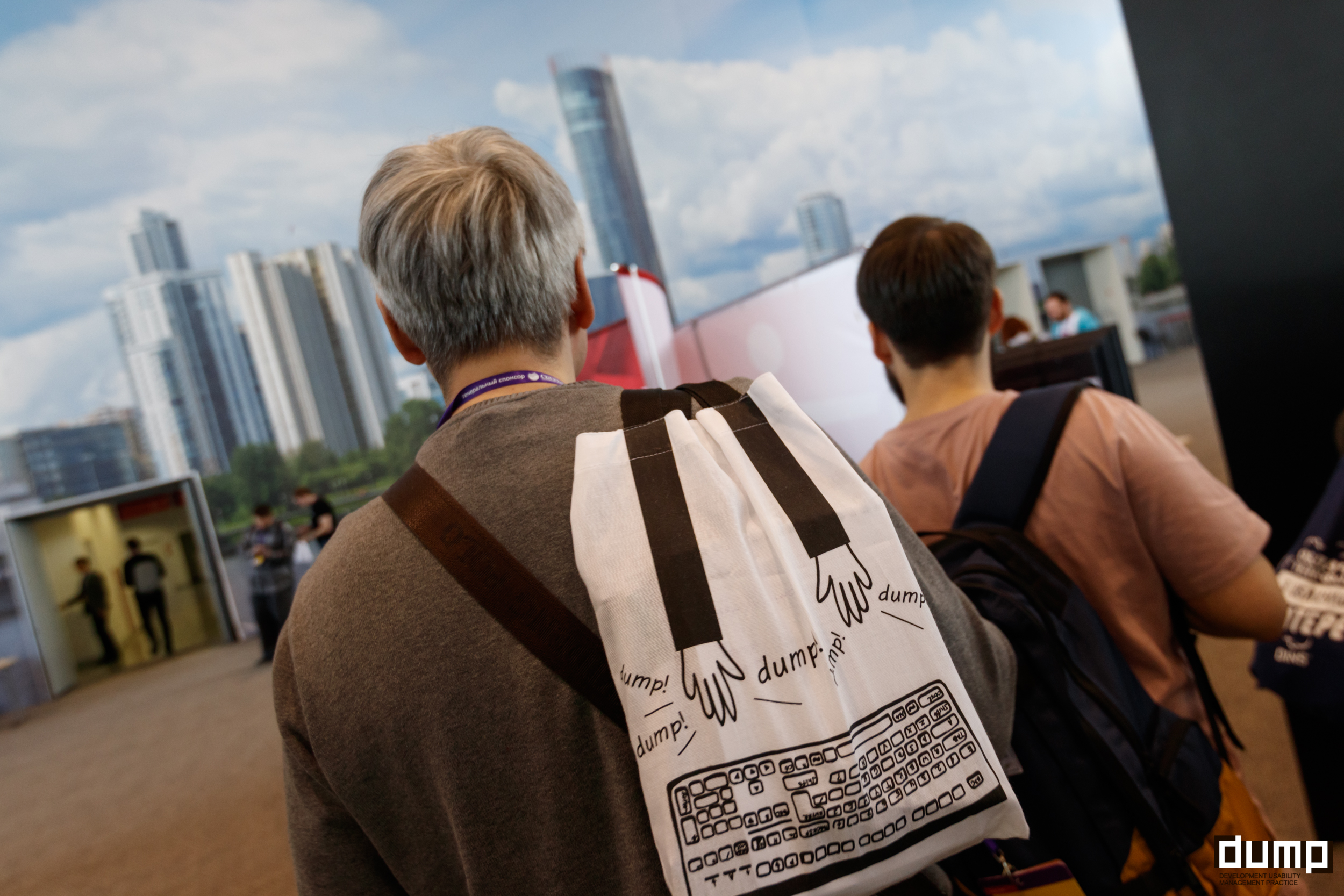
If you don’t know what DUMP is, here is a short video on how last year’s conference went
 Web evangelist at HTML Academy , community leader in Web standards and host of the same podcast, organizer of Web Standards Days, city meetings pitercss_meetup and pitercss_conf conference Vadim Makeev will give a talk about graphics for the web: from creation and export to optimization and implementation.
Web evangelist at HTML Academy , community leader in Web standards and host of the same podcast, organizer of Web Standards Days, city meetings pitercss_meetup and pitercss_conf conference Vadim Makeev will give a talk about graphics for the web: from creation and export to optimization and implementation.
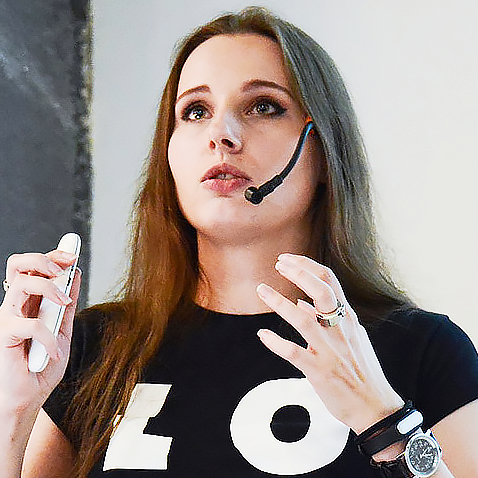 In the development world, disputes on topical topics: "Tabs or spaces?", "Do I need to indent between brackets?", "Single or double quotes?" Alexandra Shinkevich (LOVATA) will share tools and approaches that can be used to stop arguing over small things.
In the development world, disputes on topical topics: "Tabs or spaces?", "Do I need to indent between brackets?", "Single or double quotes?" Alexandra Shinkevich (LOVATA) will share tools and approaches that can be used to stop arguing over small things.
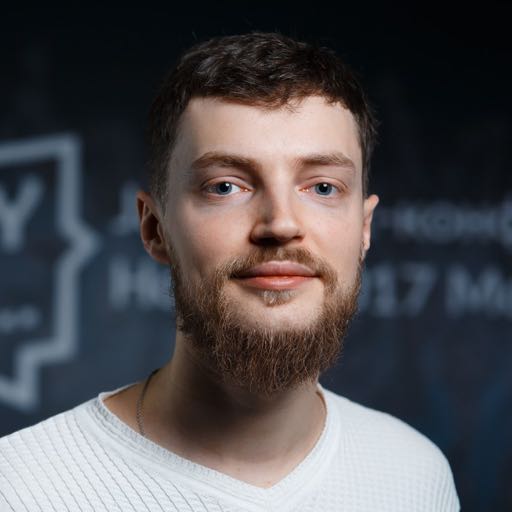 On the example of writing games Alexander Korotaev (Tinkoff.ru)will tell you how to draw 2D quickly, but simply, without clogging your head with matrices and a complex API. In the report, Alexander will consider the concepts of pre-rendering, shaders and the use of React-tree for fast drawing on the plane.
On the example of writing games Alexander Korotaev (Tinkoff.ru)will tell you how to draw 2D quickly, but simply, without clogging your head with matrices and a complex API. In the report, Alexander will consider the concepts of pre-rendering, shaders and the use of React-tree for fast drawing on the plane.
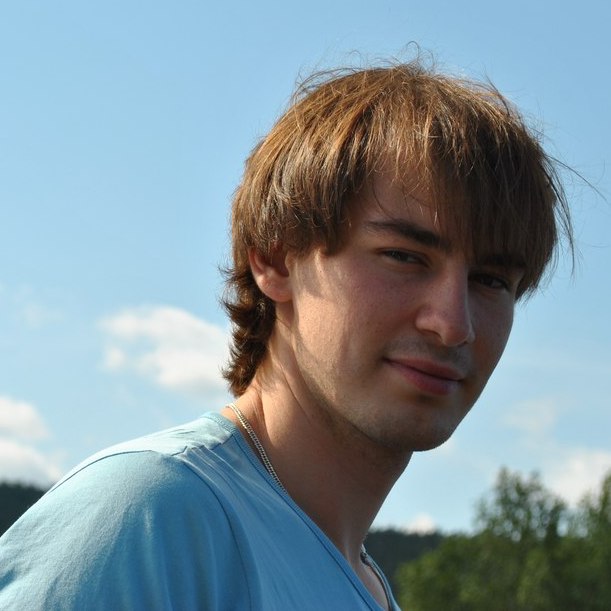 Artyom Kuzvesov will consider what technologies are currently available for mobile development, visually compare how identical applications look and work, one of which is written in React Native and the other in Cordova, and tells about the strengths and weaknesses of each solution.
Artyom Kuzvesov will consider what technologies are currently available for mobile development, visually compare how identical applications look and work, one of which is written in React Native and the other in Cordova, and tells about the strengths and weaknesses of each solution.
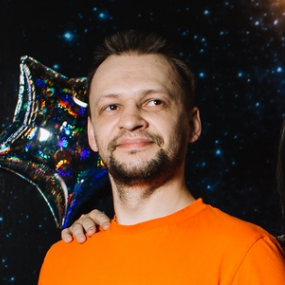 Frontend team leader at SKB LAB Sergey Tsvetkov (Yekaterinburg) will give an Angular Elements report: using the Angular framework as an example, he will tell you how to decompose a monolithic web application using HTML5 Web Components.
Frontend team leader at SKB LAB Sergey Tsvetkov (Yekaterinburg) will give an Angular Elements report: using the Angular framework as an example, he will tell you how to decompose a monolithic web application using HTML5 Web Components.
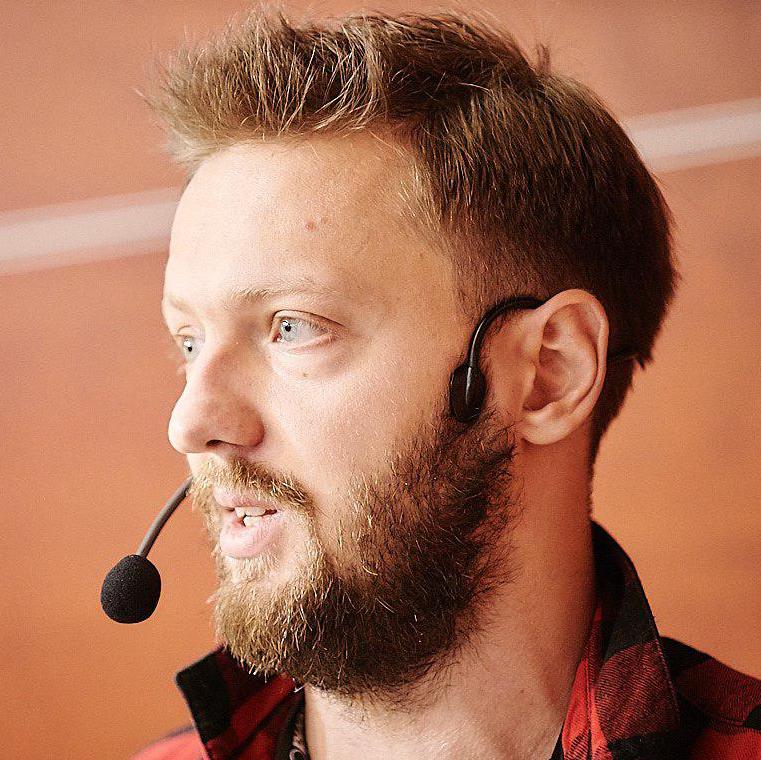 Vitaly Dmitriev (404 Group)It will reveal the basic principles of a reactive approach to programming, list useful tools and, most importantly, explain how they can help in creating easily extensible applications if you reorganize your thinking in developing.
Vitaly Dmitriev (404 Group)It will reveal the basic principles of a reactive approach to programming, list useful tools and, most importantly, explain how they can help in creating easily extensible applications if you reorganize your thinking in developing.
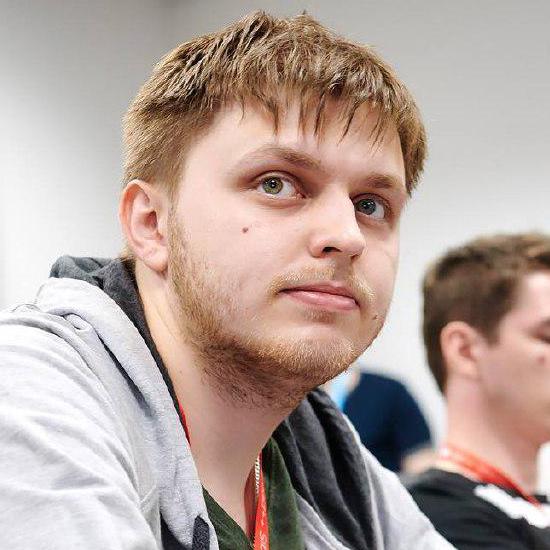 In articles and reports from cool developers, they often talk about autotests. “It's easy, it's cool,” they say. However, when you start writing them yourself, you do not feel either lightness or coolness, only pain. Frontend Lead at N1.RU Maxim Sosnov will teach you how to write the right tests.
In articles and reports from cool developers, they often talk about autotests. “It's easy, it's cool,” they say. However, when you start writing them yourself, you do not feel either lightness or coolness, only pain. Frontend Lead at N1.RU Maxim Sosnov will teach you how to write the right tests.
 Which of us didn’t make up the html mailing list? Surely you remember that medieval code, filled with creepy tables and inline styles. Over the years, letters have become more beautiful, they began to appear decently on mobile devices, they even appeared interactive. Alexander Khlebnikov from 2GIS will tell you how to typeset mailings in 2019, defeat Outlook and not get stuck in an eternal bugfix.
Which of us didn’t make up the html mailing list? Surely you remember that medieval code, filled with creepy tables and inline styles. Over the years, letters have become more beautiful, they began to appear decently on mobile devices, they even appeared interactive. Alexander Khlebnikov from 2GIS will tell you how to typeset mailings in 2019, defeat Outlook and not get stuck in an eternal bugfix.

All reports from last year’s conference can be viewed on the YouTube channel.
 Using an example of his own backend project, Evil Martians developer Nikolai Sverchkov will tell you all about the practical side of working with serverless: how difficult it is to start, how much documentation and tutorials, whether there is support for generally accepted standards, how to test locally, how much it costs, which language is better to use, which stack tasks are most relevant.
Using an example of his own backend project, Evil Martians developer Nikolai Sverchkov will tell you all about the practical side of working with serverless: how difficult it is to start, how much documentation and tutorials, whether there is support for generally accepted standards, how to test locally, how much it costs, which language is better to use, which stack tasks are most relevant.
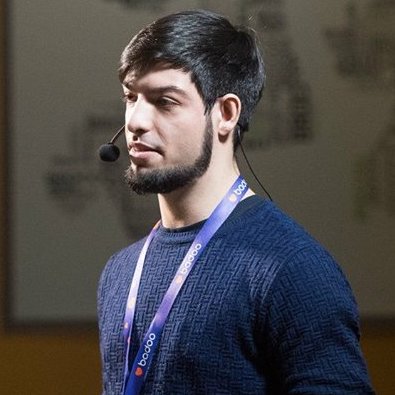 Software Engineer at Avito Artemy Ryabinkov talks about the advantages and disadvantages of the basic tools that are commonly used when working with Postgres in Go. It touches on the nuances that need to be considered when your services work inside the Kubernetes cloud. He will also talk about Avito's experience in providing a database to product developers.
Software Engineer at Avito Artemy Ryabinkov talks about the advantages and disadvantages of the basic tools that are commonly used when working with Postgres in Go. It touches on the nuances that need to be considered when your services work inside the Kubernetes cloud. He will also talk about Avito's experience in providing a database to product developers.
 Recently, a new data type has appeared in Redis 5 - streams, this is the implementation of ideas from the popular Kafka message broker. Denis Kataev (Tinkoff.ru) will explain why you need streams, how they differ from regular queues, what is the difference between Kafka and Redis streams, and also tells about the "pitfalls" that lie ahead.
Recently, a new data type has appeared in Redis 5 - streams, this is the implementation of ideas from the popular Kafka message broker. Denis Kataev (Tinkoff.ru) will explain why you need streams, how they differ from regular queues, what is the difference between Kafka and Redis streams, and also tells about the "pitfalls" that lie ahead.
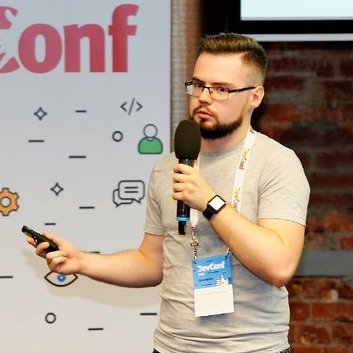 Dmitry Tsepelev from Evil Martians will tell you how to think in graphs: in the report he will review the query language itself, tell about its advantages and disadvantages, and then make recommendations for developing a graph scheme. After the report, there is every chance to step on the rake less often when developing the scheme of your first GraphQL API, and to understand the difference between GraphQL and the usual REST APIs.
Dmitry Tsepelev from Evil Martians will tell you how to think in graphs: in the report he will review the query language itself, tell about its advantages and disadvantages, and then make recommendations for developing a graph scheme. After the report, there is every chance to step on the rake less often when developing the scheme of your first GraphQL API, and to understand the difference between GraphQL and the usual REST APIs.

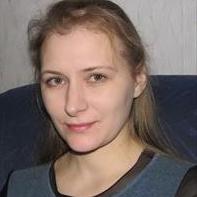 Victor Candoba andSvetlana Zavyalova (Kontur) will tell how they automated support with the help of speech technologies: where to start the implementation of speech technologies and how to sell it to business; what does a voice service consist of, what tools are there; what to develop independently, and what is better to reuse, in what order; how to choose scenarios and conduct experiments.
Victor Candoba andSvetlana Zavyalova (Kontur) will tell how they automated support with the help of speech technologies: where to start the implementation of speech technologies and how to sell it to business; what does a voice service consist of, what tools are there; what to develop independently, and what is better to reuse, in what order; how to choose scenarios and conduct experiments.
 Sergey Dolganov (Evil Martians) will talk about an alternative, “contact” approach to building API dependent applications, talk about the library that they created and use to develop and support integrations. About the prototype of the solution in Ruby, as well as about work on a cross-platform implementation in Rust and Go.
Sergey Dolganov (Evil Martians) will talk about an alternative, “contact” approach to building API dependent applications, talk about the library that they created and use to develop and support integrations. About the prototype of the solution in Ruby, as well as about work on a cross-platform implementation in Rust and Go.
 Vitaliy Semyachkin (JetStyle)He will share his experience of working with voice assistants and smart speakers Alex and Alice: what opportunities and features they have, what rakes they can wait for, how they can be heroically overcome, and how to prepare the whole story. On the example of an experimental case with a “smart office meeting room” Vitaly will tell how they worked with Alisa, how they identified users, tied a box of iron to a specific Yandex station, and what else would you like to get from the Yandex.Dialogs platform so that it becomes a full-fledged IoT center , like Alexa.
Vitaliy Semyachkin (JetStyle)He will share his experience of working with voice assistants and smart speakers Alex and Alice: what opportunities and features they have, what rakes they can wait for, how they can be heroically overcome, and how to prepare the whole story. On the example of an experimental case with a “smart office meeting room” Vitaly will tell how they worked with Alisa, how they identified users, tied a box of iron to a specific Yandex station, and what else would you like to get from the Yandex.Dialogs platform so that it becomes a full-fledged IoT center , like Alexa.
 Yuri Kerbitskov (Ak Bars Digital Technologies)He will tell you what application domains are and what they are for, explain how to work with dynamically loaded assemblies from .NET Core. It also introduces new techniques for isolating assemblies, loading / unloading, and security aspects. After the talk, you will better understand how .NET Core works under the hood.
Yuri Kerbitskov (Ak Bars Digital Technologies)He will tell you what application domains are and what they are for, explain how to work with dynamically loaded assemblies from .NET Core. It also introduces new techniques for isolating assemblies, loading / unloading, and security aspects. After the talk, you will better understand how .NET Core works under the hood.
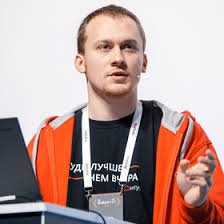 The Vostok project is tools and practices that have proven themselves within the company Kontur, which project participants make part of OpenSource. Leading software engineer in the circuit Grigory Koshelev will talk about the part of the East that provides centralized telemetry processing.
The Vostok project is tools and practices that have proven themselves within the company Kontur, which project participants make part of OpenSource. Leading software engineer in the circuit Grigory Koshelev will talk about the part of the East that provides centralized telemetry processing.
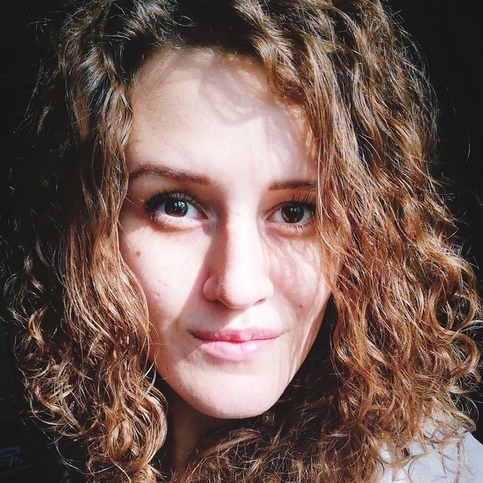 Anastasia Kalashnikova, a practicing psychologist and HR in IT, will give practical recommendations on how to conduct an interview: how to evaluate which questions to ask and which ones to keep with you; how to predict whether a person will fit into the team; how to understand whether a candidate will be able to work independently and whether he will develop; Is it worth collecting reference for the candidate.
Anastasia Kalashnikova, a practicing psychologist and HR in IT, will give practical recommendations on how to conduct an interview: how to evaluate which questions to ask and which ones to keep with you; how to predict whether a person will fit into the team; how to understand whether a candidate will be able to work independently and whether he will develop; Is it worth collecting reference for the candidate.
 Alexey Zhukov from Kontur will tell how they in Kontur test hypotheses before releasing products and features. In the report: customer development as a model for building a growth team, life examples about creating and developing products for the b2b market, which a corporate entrepreneur should be able to do.
Alexey Zhukov from Kontur will tell how they in Kontur test hypotheses before releasing products and features. In the report: customer development as a model for building a growth team, life examples about creating and developing products for the b2b market, which a corporate entrepreneur should be able to do.
 Founder of the agency "Dolgushev and Starozhilov" Alexey Dolgushevbased on the experience of managing DevRel projects in 10 companies and 10 years of monitoring the IT industry, he will explain how this fashionable DevRel will help people learn about your company so that they would like to work for you. Alexey Kataev ,
Founder of the agency "Dolgushev and Starozhilov" Alexey Dolgushevbased on the experience of managing DevRel projects in 10 companies and 10 years of monitoring the IT industry, he will explain how this fashionable DevRel will help people learn about your company so that they would like to work for you. Alexey Kataev ,
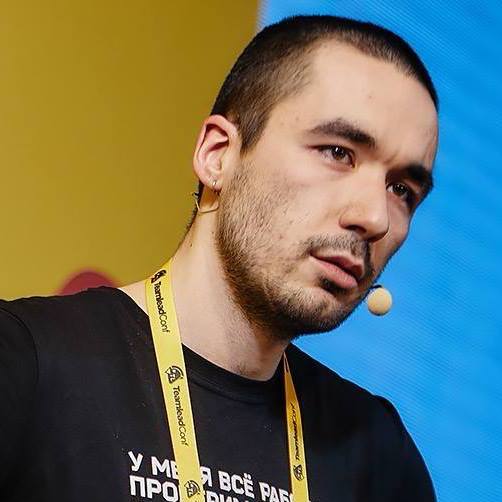
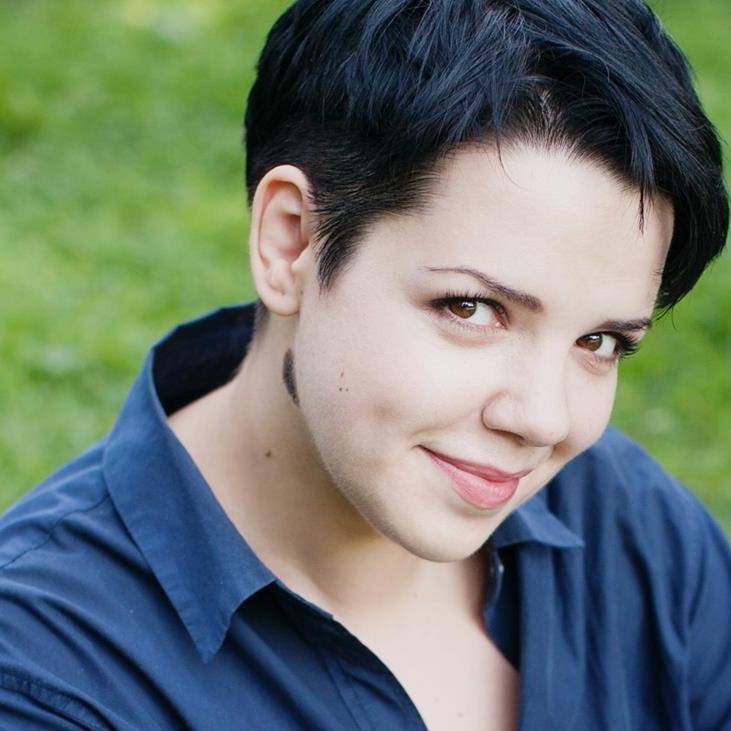 Head of Development at SkyEng, will explain how to manage the product metrics. And product manager Svetlana Ayupova will talk about the hypothesis testing cycle at SkyEng - product team No. 1 in Russia.
Head of Development at SkyEng, will explain how to manage the product metrics. And product manager Svetlana Ayupova will talk about the hypothesis testing cycle at SkyEng - product team No. 1 in Russia.
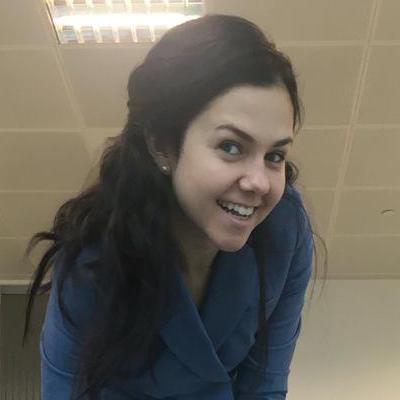 The founder of bulkina.tech Natalia Bulkina will talk about problem-free “problem” interviews: how to communicate with a client in a quality manner to check the viability of your business idea. Natalia will also analyze the main errors that can lead to incorrect results.
The founder of bulkina.tech Natalia Bulkina will talk about problem-free “problem” interviews: how to communicate with a client in a quality manner to check the viability of your business idea. Natalia will also analyze the main errors that can lead to incorrect results.
 There are tons of training materials that tell you how to delegate, and what happens if you don’t. However, looking back, you can see how even the most experienced managers neglect delegation. Why it happens? How to choose between “do it yourself” and give it to the performer? Ivan Sukhov will explain why delegating is a bad option.
There are tons of training materials that tell you how to delegate, and what happens if you don’t. However, looking back, you can see how even the most experienced managers neglect delegation. Why it happens? How to choose between “do it yourself” and give it to the performer? Ivan Sukhov will explain why delegating is a bad option.

One of the best reports of last year is “The Unsowed Field Bigdats in Medicine and Pharmacy” by Grigory Bakunov
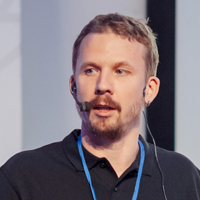 Senior software engineer at EPAM and GDG organizer in Nizhny Novgorod Alexander Denisov will talk about Flutter, an open source SDK for building mobile applications from Google. Presentation: Flutter review, asynchronous programming in Dart, choice of architecture for Flutter application, BloC architecture in details and examples, eternal question - cross-platform or native, which changed with the advent of Flutter.
Senior software engineer at EPAM and GDG organizer in Nizhny Novgorod Alexander Denisov will talk about Flutter, an open source SDK for building mobile applications from Google. Presentation: Flutter review, asynchronous programming in Dart, choice of architecture for Flutter application, BloC architecture in details and examples, eternal question - cross-platform or native, which changed with the advent of Flutter.
 Pavel Strelchenko (HeadHunter)will tell how HH.ru made a plug-in for creating feature-modules: why they decided to write a plug-in and why the existing code generation solutions did not fit; what problems they faced and how they were solved; will reveal a few secrets of plugin building, and also show the source code and tell you what to change in them to solve your problems.
Pavel Strelchenko (HeadHunter)will tell how HH.ru made a plug-in for creating feature-modules: why they decided to write a plug-in and why the existing code generation solutions did not fit; what problems they faced and how they were solved; will reveal a few secrets of plugin building, and also show the source code and tell you what to change in them to solve your problems.
 QA Lead in 2GIS Lidiya Soshkina , using the 2GIS mobile application as an example, will show how their prioritization system works. The report will be useful to everyone who has not yet automated everything in the world and is still forced to cope with a large amount of manual regression testing. On the report you will receive a practical guide on prioritizing test cases.
QA Lead in 2GIS Lidiya Soshkina , using the 2GIS mobile application as an example, will show how their prioritization system works. The report will be useful to everyone who has not yet automated everything in the world and is still forced to cope with a large amount of manual regression testing. On the report you will receive a practical guide on prioritizing test cases.
 The founder of the COMAQA.BY testing automation community, Anton Semenchenko, will explain whether the BDD approach imposes architectural restrictions on frontend and backend test automation solutions.
The founder of the COMAQA.BY testing automation community, Anton Semenchenko, will explain whether the BDD approach imposes architectural restrictions on frontend and backend test automation solutions.
 Anna Bogolyubova will tell how at the Pointthey solve the problem of unfulfilled technical debt: when bugs and minor improvements are accumulated, but no time is allocated for their completion, because there are always more priority tasks. This experience can be applied everywhere, in any team of any workflow, even in personal life.
Anna Bogolyubova will tell how at the Pointthey solve the problem of unfulfilled technical debt: when bugs and minor improvements are accumulated, but no time is allocated for their completion, because there are always more priority tasks. This experience can be applied everywhere, in any team of any workflow, even in personal life.
 Technical QA lead in RealtimeBoard Anton Necheuhin will tell you how to make a reliable stress test that will take into account all the nuances and even those that we do not yet know about. The report includes, among other things, overcoming technical difficulties, load experience using WebSocket connections. The approach itself can be used for various load testing tools and options for implementing services. Circuit
Technical QA lead in RealtimeBoard Anton Necheuhin will tell you how to make a reliable stress test that will take into account all the nuances and even those that we do not yet know about. The report includes, among other things, overcoming technical difficulties, load experience using WebSocket connections. The approach itself can be used for various load testing tools and options for implementing services. Circuit
 Testing Specialist Ivan ShelomintsevThe report will talk about how to load the CPU at rated load using NUnit 3.10.1. instead of buying expensive hardware, and will explain the main points that should be considered when parallelizing the tests.
Testing Specialist Ivan ShelomintsevThe report will talk about how to load the CPU at rated load using NUnit 3.10.1. instead of buying expensive hardware, and will explain the main points that should be considered when parallelizing the tests.
 In the days of DevOps, the roles of testers and QA professionals are not entirely clear. Alexey Lapaev (Tinkoff.ru) will look into the future of the profession and think about how to approach the issue of quality so as not to fall out of the rhythm of development of the development sphere. Alexey will share his ideas on where to evolve from a conditional tester.
In the days of DevOps, the roles of testers and QA professionals are not entirely clear. Alexey Lapaev (Tinkoff.ru) will look into the future of the profession and think about how to approach the issue of quality so as not to fall out of the rhythm of development of the development sphere. Alexey will share his ideas on where to evolve from a conditional tester.
 Grigory Savenok , Head of User Experience and Interfaces at MegaFon, will tell you how when presenting design to non-designers, protect solutions the first time and not receive comments about fonts, colors and buttons. Gregory will teach how to work out customer objections, using examples he will show how far edits can be made and how this can be avoided. The report will be useful for both designers and managers.
Grigory Savenok , Head of User Experience and Interfaces at MegaFon, will tell you how when presenting design to non-designers, protect solutions the first time and not receive comments about fonts, colors and buttons. Gregory will teach how to work out customer objections, using examples he will show how far edits can be made and how this can be avoided. The report will be useful for both designers and managers.
 You came to work as a designer in a long-existing product. How to care for him, what problems to solve in the first place, and are the best solutions always in the plane of the interface? Alena Kirdina (Evil Martians)will tell you how they put eBay for business in a year, guided not by interviews, analytics and sudden insights ... but by a list of errors in the scenario of its use.
You came to work as a designer in a long-existing product. How to care for him, what problems to solve in the first place, and are the best solutions always in the plane of the interface? Alena Kirdina (Evil Martians)will tell you how they put eBay for business in a year, guided not by interviews, analytics and sudden insights ... but by a list of errors in the scenario of its use.
 Alexandra Rudenko (Service Design Bureau) will tell you with what research to build a Customer Experience Map, what tasks it solves for designers, and show how you can cover the entire client’s path and the transitions between online and offline on one map to take into account client contexts when developing products .
Alexandra Rudenko (Service Design Bureau) will tell you with what research to build a Customer Experience Map, what tasks it solves for designers, and show how you can cover the entire client’s path and the transitions between online and offline on one map to take into account client contexts when developing products .
 The creative director at Geex Arts, Vyacheslav Kornilov, will talk about working on concepts as a tool for acquiring international clients and creating trends. On the example of a redesign by Times and USA Today, he will analyze the design in the media sites and the components for creating impressive publications.
The creative director at Geex Arts, Vyacheslav Kornilov, will talk about working on concepts as a tool for acquiring international clients and creating trends. On the example of a redesign by Times and USA Today, he will analyze the design in the media sites and the components for creating impressive publications.
 Nikita Bespamyatnykh (Contour) will tell you how to interact with desktop applications in the browser so that the user does not notice this. When it is needed, how it affects the consistency of design and what value it carries for the user and development.
Nikita Bespamyatnykh (Contour) will tell you how to interact with desktop applications in the browser so that the user does not notice this. When it is needed, how it affects the consistency of design and what value it carries for the user and development.
 Maxim Sovenkov (SEMrush) will share his experience as designers finding a common language with programmers. From the report you will learn: what the designer should know about the development team; what the team should know about the UX / UI designer; what are the problems in the interaction of the designer and the development team and the reasons for their occurrence; what the designer and the team must agree on.
Maxim Sovenkov (SEMrush) will share his experience as designers finding a common language with programmers. From the report you will learn: what the designer should know about the development team; what the team should know about the UX / UI designer; what are the problems in the interaction of the designer and the development team and the reasons for their occurrence; what the designer and the team must agree on.
 UX-Designer in SEMrush Sergey Krivoywill hold a workshop “Problem Engineering - Design of Problems”. Participants will try in practice a way of designing new products, based on making all interested people think not about features, but about problems that they can solve. First you will need to generate the worst solutions for various digital products. Then, during the inversion of problems into solutions, get a good product with an emphasis on user problems.
UX-Designer in SEMrush Sergey Krivoywill hold a workshop “Problem Engineering - Design of Problems”. Participants will try in practice a way of designing new products, based on making all interested people think not about features, but about problems that they can solve. First you will need to generate the worst solutions for various digital products. Then, during the inversion of problems into solutions, get a good product with an emphasis on user problems.
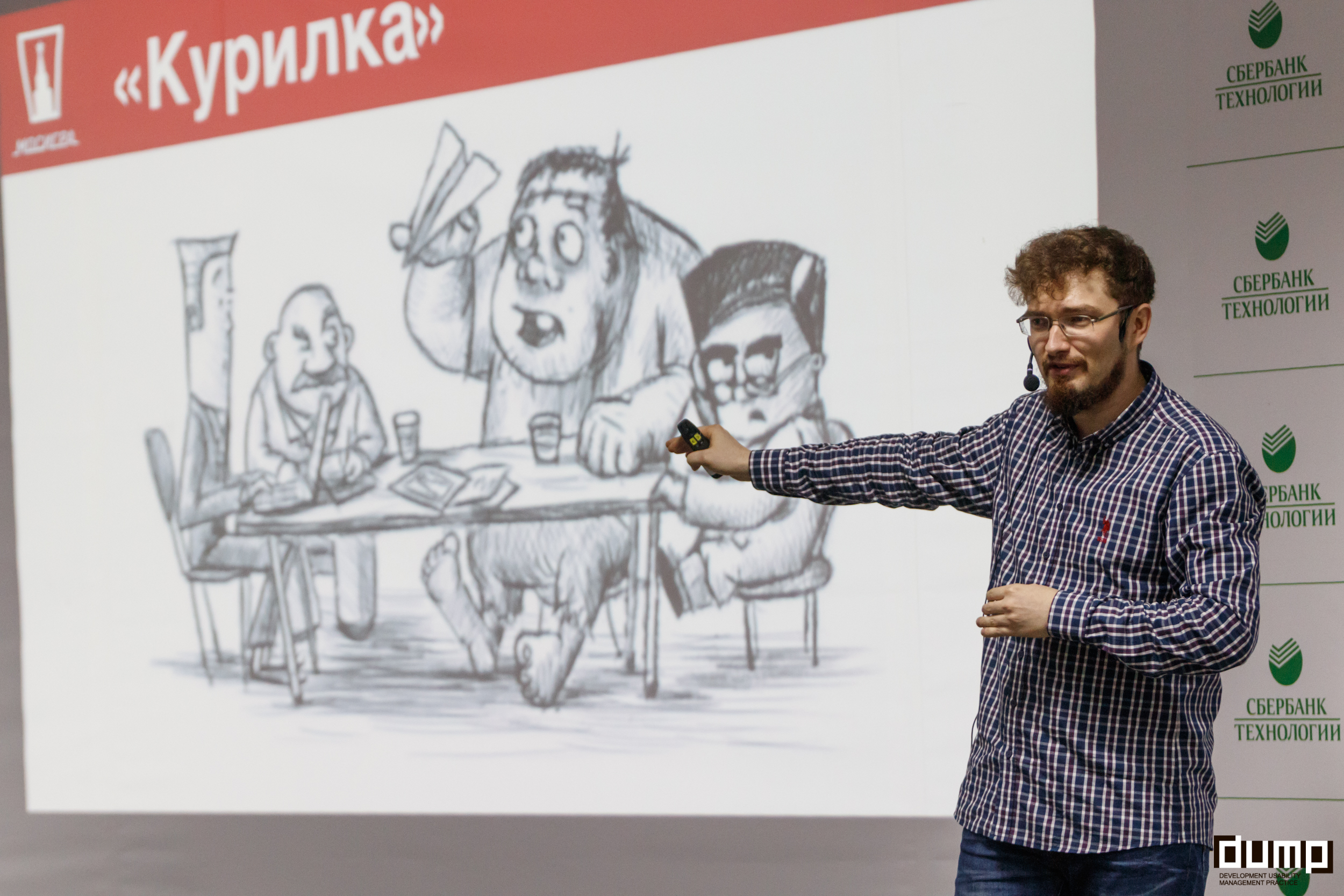
Last year, Sergey Abdulmanov explained on the heap of examples how the clear text for the interface differs
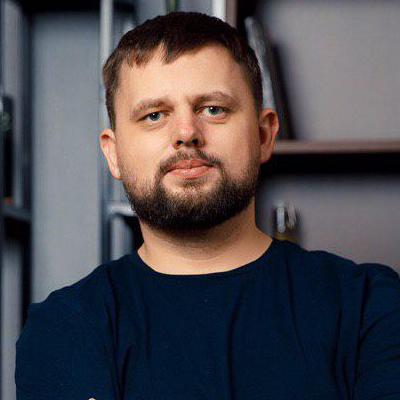 Ruslan Serkin (DataArt) will tell you what serverless is and what it is “eaten with”, consider the main problems that you may encounter during development, share your experience and practices on how to avoid major mistakes when starting development using serverless technologies.
Ruslan Serkin (DataArt) will tell you what serverless is and what it is “eaten with”, consider the main problems that you may encounter during development, share your experience and practices on how to avoid major mistakes when starting development using serverless technologies.
 The director of the Ekaterinburg web studio Flag Mikhail Radionov will tell you how and why they wrote their CI in the Laravel ecosystem to work with many different small projects. And he will answer the question “is it worth writing your CI for a web studio?”
The director of the Ekaterinburg web studio Flag Mikhail Radionov will tell you how and why they wrote their CI in the Laravel ecosystem to work with many different small projects. And he will answer the question “is it worth writing your CI for a web studio?”
 Elasticsearch deployed a long time ago at Contour, and the amount of data in it is approaching one petabyte. Software Engineer in the Contour Vladimir Lilawill tell you why they love elastic, how it helps the company and why you should love it. Vladimir will talk about the organization of the process, log transport, technical details of constructing such a cluster, common mistakes and the benefits of all this.
Elasticsearch deployed a long time ago at Contour, and the amount of data in it is approaching one petabyte. Software Engineer in the Contour Vladimir Lilawill tell you why they love elastic, how it helps the company and why you should love it. Vladimir will talk about the organization of the process, log transport, technical details of constructing such a cluster, common mistakes and the benefits of all this.
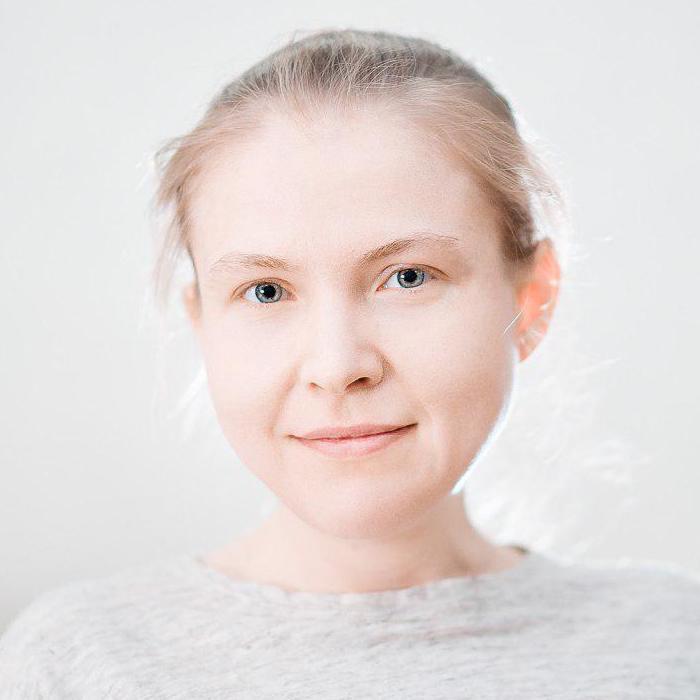 Tatiana Zobnina from Naumen will explain why and how to analyze data in the era of "big data" and machine learning. Is it possible to get by with the analysis of "black boxes"? And in what problems of the analysis of the relationships between the variables can not be avoided?
Tatiana Zobnina from Naumen will explain why and how to analyze data in the era of "big data" and machine learning. Is it possible to get by with the analysis of "black boxes"? And in what problems of the analysis of the relationships between the variables can not be avoided?
 Igor Mamay (Kontur) will tell you the minimum necessary for understanding quantum algorithms, consider the physical principles that make quantum computing possible, introduce him to a mathematical model, explain what a qubit is and what operations can be performed on it. And Igor will analyze a simple algorithm that demonstrates the advantage of quantum computing over classical ones.
Igor Mamay (Kontur) will tell you the minimum necessary for understanding quantum algorithms, consider the physical principles that make quantum computing possible, introduce him to a mathematical model, explain what a qubit is and what operations can be performed on it. And Igor will analyze a simple algorithm that demonstrates the advantage of quantum computing over classical ones.
 Nikolay Kuklin (Ceramic 3D)will share his image smoothing algorithm and how to implement it on the GPU. This is a real working implementation in a commercial program, which allowed rendering a high-quality image in a virtual reality helmet.
Nikolay Kuklin (Ceramic 3D)will share his image smoothing algorithm and how to implement it on the GPU. This is a real working implementation in a commercial program, which allowed rendering a high-quality image in a virtual reality helmet.

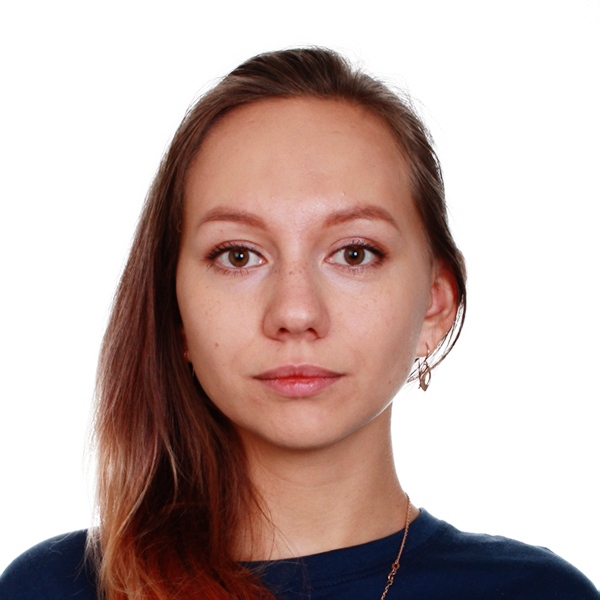 The developers at Tinkoff.ru Vladislav Blinov and Valeriya Baranova, using the example of a chatbot, will figure out when to implement a state-of-the-art scientific article, in which cases you can get by with logistic regression, and when it is better to recall the good old prefix tree.
The developers at Tinkoff.ru Vladislav Blinov and Valeriya Baranova, using the example of a chatbot, will figure out when to implement a state-of-the-art scientific article, in which cases you can get by with logistic regression, and when it is better to recall the good old prefix tree.
That is not all. The program is replenished every day. The final version will be ready by March 20.
The abstracts of all reports are on the conference website .

The famous mathematics popularizer Aleksey Savvateev made a gorgeous report “Game Theory and Big City Problems” in the Science section last year .
Register on the conference website . Until April 1, a ticket costs 6000 rubles. Then - more expensive.
The conference will be held at Expo (Yekaterinburg, Expo Boulevard, 2). To the Expo, we organize a free transfer from the center in the morning and back in the evening.
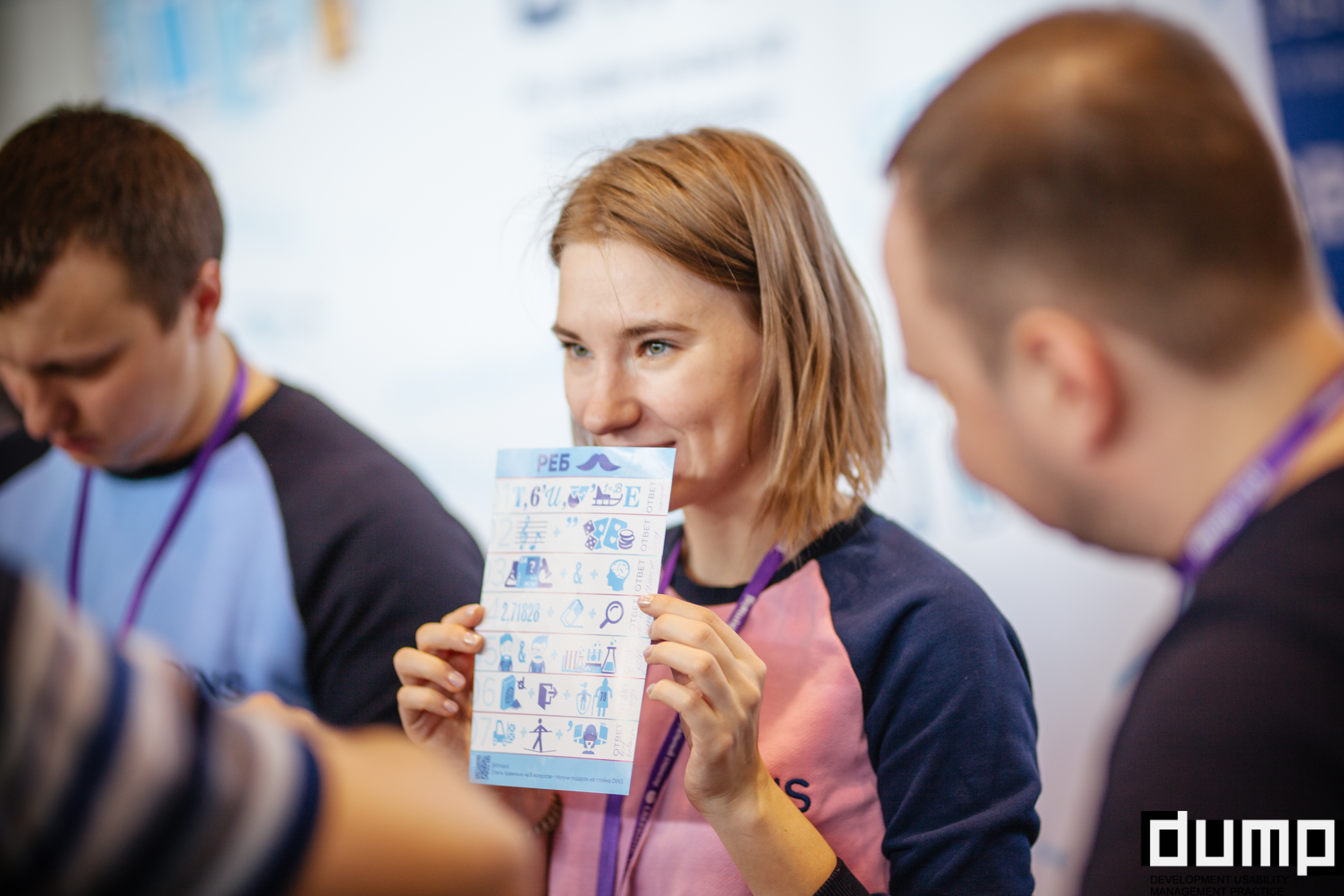
Join now! We will be glad to see you!
On April 19, in Yekaterinburg , the DUMP Developer Conference will be held for the ninth time . Reports will go in 8 sections: Backend, Frontend, Mobile, Testing and QA, Devops, Design, Science and Management. Plus master classes, dedicated areas for communication, activity from sponsors and afterparties.
The preliminary program includes 52 speakers, including Nikolai Sverchkov (Evil Martians), Vadim Makeev (HTML Academy), Artemy Ryabinkov (Avito), Alexander Korotaev (Tinkoff.ru), Alexander Khlebnikov (2GIS), Alexander Denisov (EPAM), Pavel Strelchenko (HeadHunter), Alexey Kataev (SkyEng), Alexey Zhukov (Kontur), Grigory Savenok (MegaFon), Sergey Krivoy (SEMrush), Alexandra Rudenko (Service Design Bureau). The final program will be ready by March 20. Under the cut - details of the program.

If you don’t know what DUMP is, here is a short video on how last year’s conference went
What will happen in the Frontend section
 Web evangelist at HTML Academy , community leader in Web standards and host of the same podcast, organizer of Web Standards Days, city meetings pitercss_meetup and pitercss_conf conference Vadim Makeev will give a talk about graphics for the web: from creation and export to optimization and implementation.
Web evangelist at HTML Academy , community leader in Web standards and host of the same podcast, organizer of Web Standards Days, city meetings pitercss_meetup and pitercss_conf conference Vadim Makeev will give a talk about graphics for the web: from creation and export to optimization and implementation.  In the development world, disputes on topical topics: "Tabs or spaces?", "Do I need to indent between brackets?", "Single or double quotes?" Alexandra Shinkevich (LOVATA) will share tools and approaches that can be used to stop arguing over small things.
In the development world, disputes on topical topics: "Tabs or spaces?", "Do I need to indent between brackets?", "Single or double quotes?" Alexandra Shinkevich (LOVATA) will share tools and approaches that can be used to stop arguing over small things.  On the example of writing games Alexander Korotaev (Tinkoff.ru)will tell you how to draw 2D quickly, but simply, without clogging your head with matrices and a complex API. In the report, Alexander will consider the concepts of pre-rendering, shaders and the use of React-tree for fast drawing on the plane.
On the example of writing games Alexander Korotaev (Tinkoff.ru)will tell you how to draw 2D quickly, but simply, without clogging your head with matrices and a complex API. In the report, Alexander will consider the concepts of pre-rendering, shaders and the use of React-tree for fast drawing on the plane.  Artyom Kuzvesov will consider what technologies are currently available for mobile development, visually compare how identical applications look and work, one of which is written in React Native and the other in Cordova, and tells about the strengths and weaknesses of each solution.
Artyom Kuzvesov will consider what technologies are currently available for mobile development, visually compare how identical applications look and work, one of which is written in React Native and the other in Cordova, and tells about the strengths and weaknesses of each solution.  Frontend team leader at SKB LAB Sergey Tsvetkov (Yekaterinburg) will give an Angular Elements report: using the Angular framework as an example, he will tell you how to decompose a monolithic web application using HTML5 Web Components.
Frontend team leader at SKB LAB Sergey Tsvetkov (Yekaterinburg) will give an Angular Elements report: using the Angular framework as an example, he will tell you how to decompose a monolithic web application using HTML5 Web Components.  Vitaly Dmitriev (404 Group)It will reveal the basic principles of a reactive approach to programming, list useful tools and, most importantly, explain how they can help in creating easily extensible applications if you reorganize your thinking in developing.
Vitaly Dmitriev (404 Group)It will reveal the basic principles of a reactive approach to programming, list useful tools and, most importantly, explain how they can help in creating easily extensible applications if you reorganize your thinking in developing.  In articles and reports from cool developers, they often talk about autotests. “It's easy, it's cool,” they say. However, when you start writing them yourself, you do not feel either lightness or coolness, only pain. Frontend Lead at N1.RU Maxim Sosnov will teach you how to write the right tests.
In articles and reports from cool developers, they often talk about autotests. “It's easy, it's cool,” they say. However, when you start writing them yourself, you do not feel either lightness or coolness, only pain. Frontend Lead at N1.RU Maxim Sosnov will teach you how to write the right tests. Which of us didn’t make up the html mailing list? Surely you remember that medieval code, filled with creepy tables and inline styles. Over the years, letters have become more beautiful, they began to appear decently on mobile devices, they even appeared interactive. Alexander Khlebnikov from 2GIS will tell you how to typeset mailings in 2019, defeat Outlook and not get stuck in an eternal bugfix.
Which of us didn’t make up the html mailing list? Surely you remember that medieval code, filled with creepy tables and inline styles. Over the years, letters have become more beautiful, they began to appear decently on mobile devices, they even appeared interactive. Alexander Khlebnikov from 2GIS will tell you how to typeset mailings in 2019, defeat Outlook and not get stuck in an eternal bugfix. 
All reports from last year’s conference can be viewed on the YouTube channel.
What will happen in the Backend section
 Using an example of his own backend project, Evil Martians developer Nikolai Sverchkov will tell you all about the practical side of working with serverless: how difficult it is to start, how much documentation and tutorials, whether there is support for generally accepted standards, how to test locally, how much it costs, which language is better to use, which stack tasks are most relevant.
Using an example of his own backend project, Evil Martians developer Nikolai Sverchkov will tell you all about the practical side of working with serverless: how difficult it is to start, how much documentation and tutorials, whether there is support for generally accepted standards, how to test locally, how much it costs, which language is better to use, which stack tasks are most relevant.  Software Engineer at Avito Artemy Ryabinkov talks about the advantages and disadvantages of the basic tools that are commonly used when working with Postgres in Go. It touches on the nuances that need to be considered when your services work inside the Kubernetes cloud. He will also talk about Avito's experience in providing a database to product developers.
Software Engineer at Avito Artemy Ryabinkov talks about the advantages and disadvantages of the basic tools that are commonly used when working with Postgres in Go. It touches on the nuances that need to be considered when your services work inside the Kubernetes cloud. He will also talk about Avito's experience in providing a database to product developers. Recently, a new data type has appeared in Redis 5 - streams, this is the implementation of ideas from the popular Kafka message broker. Denis Kataev (Tinkoff.ru) will explain why you need streams, how they differ from regular queues, what is the difference between Kafka and Redis streams, and also tells about the "pitfalls" that lie ahead.
Recently, a new data type has appeared in Redis 5 - streams, this is the implementation of ideas from the popular Kafka message broker. Denis Kataev (Tinkoff.ru) will explain why you need streams, how they differ from regular queues, what is the difference between Kafka and Redis streams, and also tells about the "pitfalls" that lie ahead.  Dmitry Tsepelev from Evil Martians will tell you how to think in graphs: in the report he will review the query language itself, tell about its advantages and disadvantages, and then make recommendations for developing a graph scheme. After the report, there is every chance to step on the rake less often when developing the scheme of your first GraphQL API, and to understand the difference between GraphQL and the usual REST APIs.
Dmitry Tsepelev from Evil Martians will tell you how to think in graphs: in the report he will review the query language itself, tell about its advantages and disadvantages, and then make recommendations for developing a graph scheme. After the report, there is every chance to step on the rake less often when developing the scheme of your first GraphQL API, and to understand the difference between GraphQL and the usual REST APIs. 
 Victor Candoba andSvetlana Zavyalova (Kontur) will tell how they automated support with the help of speech technologies: where to start the implementation of speech technologies and how to sell it to business; what does a voice service consist of, what tools are there; what to develop independently, and what is better to reuse, in what order; how to choose scenarios and conduct experiments.
Victor Candoba andSvetlana Zavyalova (Kontur) will tell how they automated support with the help of speech technologies: where to start the implementation of speech technologies and how to sell it to business; what does a voice service consist of, what tools are there; what to develop independently, and what is better to reuse, in what order; how to choose scenarios and conduct experiments.  Sergey Dolganov (Evil Martians) will talk about an alternative, “contact” approach to building API dependent applications, talk about the library that they created and use to develop and support integrations. About the prototype of the solution in Ruby, as well as about work on a cross-platform implementation in Rust and Go.
Sergey Dolganov (Evil Martians) will talk about an alternative, “contact” approach to building API dependent applications, talk about the library that they created and use to develop and support integrations. About the prototype of the solution in Ruby, as well as about work on a cross-platform implementation in Rust and Go.  Vitaliy Semyachkin (JetStyle)He will share his experience of working with voice assistants and smart speakers Alex and Alice: what opportunities and features they have, what rakes they can wait for, how they can be heroically overcome, and how to prepare the whole story. On the example of an experimental case with a “smart office meeting room” Vitaly will tell how they worked with Alisa, how they identified users, tied a box of iron to a specific Yandex station, and what else would you like to get from the Yandex.Dialogs platform so that it becomes a full-fledged IoT center , like Alexa.
Vitaliy Semyachkin (JetStyle)He will share his experience of working with voice assistants and smart speakers Alex and Alice: what opportunities and features they have, what rakes they can wait for, how they can be heroically overcome, and how to prepare the whole story. On the example of an experimental case with a “smart office meeting room” Vitaly will tell how they worked with Alisa, how they identified users, tied a box of iron to a specific Yandex station, and what else would you like to get from the Yandex.Dialogs platform so that it becomes a full-fledged IoT center , like Alexa.  Yuri Kerbitskov (Ak Bars Digital Technologies)He will tell you what application domains are and what they are for, explain how to work with dynamically loaded assemblies from .NET Core. It also introduces new techniques for isolating assemblies, loading / unloading, and security aspects. After the talk, you will better understand how .NET Core works under the hood.
Yuri Kerbitskov (Ak Bars Digital Technologies)He will tell you what application domains are and what they are for, explain how to work with dynamically loaded assemblies from .NET Core. It also introduces new techniques for isolating assemblies, loading / unloading, and security aspects. After the talk, you will better understand how .NET Core works under the hood.  The Vostok project is tools and practices that have proven themselves within the company Kontur, which project participants make part of OpenSource. Leading software engineer in the circuit Grigory Koshelev will talk about the part of the East that provides centralized telemetry processing.
The Vostok project is tools and practices that have proven themselves within the company Kontur, which project participants make part of OpenSource. Leading software engineer in the circuit Grigory Koshelev will talk about the part of the East that provides centralized telemetry processing.What will happen in the Management section
 Anastasia Kalashnikova, a practicing psychologist and HR in IT, will give practical recommendations on how to conduct an interview: how to evaluate which questions to ask and which ones to keep with you; how to predict whether a person will fit into the team; how to understand whether a candidate will be able to work independently and whether he will develop; Is it worth collecting reference for the candidate.
Anastasia Kalashnikova, a practicing psychologist and HR in IT, will give practical recommendations on how to conduct an interview: how to evaluate which questions to ask and which ones to keep with you; how to predict whether a person will fit into the team; how to understand whether a candidate will be able to work independently and whether he will develop; Is it worth collecting reference for the candidate.  Alexey Zhukov from Kontur will tell how they in Kontur test hypotheses before releasing products and features. In the report: customer development as a model for building a growth team, life examples about creating and developing products for the b2b market, which a corporate entrepreneur should be able to do.
Alexey Zhukov from Kontur will tell how they in Kontur test hypotheses before releasing products and features. In the report: customer development as a model for building a growth team, life examples about creating and developing products for the b2b market, which a corporate entrepreneur should be able to do.  Founder of the agency "Dolgushev and Starozhilov" Alexey Dolgushevbased on the experience of managing DevRel projects in 10 companies and 10 years of monitoring the IT industry, he will explain how this fashionable DevRel will help people learn about your company so that they would like to work for you. Alexey Kataev ,
Founder of the agency "Dolgushev and Starozhilov" Alexey Dolgushevbased on the experience of managing DevRel projects in 10 companies and 10 years of monitoring the IT industry, he will explain how this fashionable DevRel will help people learn about your company so that they would like to work for you. Alexey Kataev , 
 Head of Development at SkyEng, will explain how to manage the product metrics. And product manager Svetlana Ayupova will talk about the hypothesis testing cycle at SkyEng - product team No. 1 in Russia.
Head of Development at SkyEng, will explain how to manage the product metrics. And product manager Svetlana Ayupova will talk about the hypothesis testing cycle at SkyEng - product team No. 1 in Russia.  The founder of bulkina.tech Natalia Bulkina will talk about problem-free “problem” interviews: how to communicate with a client in a quality manner to check the viability of your business idea. Natalia will also analyze the main errors that can lead to incorrect results.
The founder of bulkina.tech Natalia Bulkina will talk about problem-free “problem” interviews: how to communicate with a client in a quality manner to check the viability of your business idea. Natalia will also analyze the main errors that can lead to incorrect results. There are tons of training materials that tell you how to delegate, and what happens if you don’t. However, looking back, you can see how even the most experienced managers neglect delegation. Why it happens? How to choose between “do it yourself” and give it to the performer? Ivan Sukhov will explain why delegating is a bad option.
There are tons of training materials that tell you how to delegate, and what happens if you don’t. However, looking back, you can see how even the most experienced managers neglect delegation. Why it happens? How to choose between “do it yourself” and give it to the performer? Ivan Sukhov will explain why delegating is a bad option. 
One of the best reports of last year is “The Unsowed Field Bigdats in Medicine and Pharmacy” by Grigory Bakunov
What will happen in the Mobile section
 Senior software engineer at EPAM and GDG organizer in Nizhny Novgorod Alexander Denisov will talk about Flutter, an open source SDK for building mobile applications from Google. Presentation: Flutter review, asynchronous programming in Dart, choice of architecture for Flutter application, BloC architecture in details and examples, eternal question - cross-platform or native, which changed with the advent of Flutter.
Senior software engineer at EPAM and GDG organizer in Nizhny Novgorod Alexander Denisov will talk about Flutter, an open source SDK for building mobile applications from Google. Presentation: Flutter review, asynchronous programming in Dart, choice of architecture for Flutter application, BloC architecture in details and examples, eternal question - cross-platform or native, which changed with the advent of Flutter.  Pavel Strelchenko (HeadHunter)will tell how HH.ru made a plug-in for creating feature-modules: why they decided to write a plug-in and why the existing code generation solutions did not fit; what problems they faced and how they were solved; will reveal a few secrets of plugin building, and also show the source code and tell you what to change in them to solve your problems.
Pavel Strelchenko (HeadHunter)will tell how HH.ru made a plug-in for creating feature-modules: why they decided to write a plug-in and why the existing code generation solutions did not fit; what problems they faced and how they were solved; will reveal a few secrets of plugin building, and also show the source code and tell you what to change in them to solve your problems.What will be in the Testing and QA section
 QA Lead in 2GIS Lidiya Soshkina , using the 2GIS mobile application as an example, will show how their prioritization system works. The report will be useful to everyone who has not yet automated everything in the world and is still forced to cope with a large amount of manual regression testing. On the report you will receive a practical guide on prioritizing test cases.
QA Lead in 2GIS Lidiya Soshkina , using the 2GIS mobile application as an example, will show how their prioritization system works. The report will be useful to everyone who has not yet automated everything in the world and is still forced to cope with a large amount of manual regression testing. On the report you will receive a practical guide on prioritizing test cases.  The founder of the COMAQA.BY testing automation community, Anton Semenchenko, will explain whether the BDD approach imposes architectural restrictions on frontend and backend test automation solutions.
The founder of the COMAQA.BY testing automation community, Anton Semenchenko, will explain whether the BDD approach imposes architectural restrictions on frontend and backend test automation solutions.  Anna Bogolyubova will tell how at the Pointthey solve the problem of unfulfilled technical debt: when bugs and minor improvements are accumulated, but no time is allocated for their completion, because there are always more priority tasks. This experience can be applied everywhere, in any team of any workflow, even in personal life.
Anna Bogolyubova will tell how at the Pointthey solve the problem of unfulfilled technical debt: when bugs and minor improvements are accumulated, but no time is allocated for their completion, because there are always more priority tasks. This experience can be applied everywhere, in any team of any workflow, even in personal life.  Technical QA lead in RealtimeBoard Anton Necheuhin will tell you how to make a reliable stress test that will take into account all the nuances and even those that we do not yet know about. The report includes, among other things, overcoming technical difficulties, load experience using WebSocket connections. The approach itself can be used for various load testing tools and options for implementing services. Circuit
Technical QA lead in RealtimeBoard Anton Necheuhin will tell you how to make a reliable stress test that will take into account all the nuances and even those that we do not yet know about. The report includes, among other things, overcoming technical difficulties, load experience using WebSocket connections. The approach itself can be used for various load testing tools and options for implementing services. Circuit Testing Specialist Ivan ShelomintsevThe report will talk about how to load the CPU at rated load using NUnit 3.10.1. instead of buying expensive hardware, and will explain the main points that should be considered when parallelizing the tests.
Testing Specialist Ivan ShelomintsevThe report will talk about how to load the CPU at rated load using NUnit 3.10.1. instead of buying expensive hardware, and will explain the main points that should be considered when parallelizing the tests.  In the days of DevOps, the roles of testers and QA professionals are not entirely clear. Alexey Lapaev (Tinkoff.ru) will look into the future of the profession and think about how to approach the issue of quality so as not to fall out of the rhythm of development of the development sphere. Alexey will share his ideas on where to evolve from a conditional tester.
In the days of DevOps, the roles of testers and QA professionals are not entirely clear. Alexey Lapaev (Tinkoff.ru) will look into the future of the profession and think about how to approach the issue of quality so as not to fall out of the rhythm of development of the development sphere. Alexey will share his ideas on where to evolve from a conditional tester.What will happen in the Design section
 Grigory Savenok , Head of User Experience and Interfaces at MegaFon, will tell you how when presenting design to non-designers, protect solutions the first time and not receive comments about fonts, colors and buttons. Gregory will teach how to work out customer objections, using examples he will show how far edits can be made and how this can be avoided. The report will be useful for both designers and managers.
Grigory Savenok , Head of User Experience and Interfaces at MegaFon, will tell you how when presenting design to non-designers, protect solutions the first time and not receive comments about fonts, colors and buttons. Gregory will teach how to work out customer objections, using examples he will show how far edits can be made and how this can be avoided. The report will be useful for both designers and managers.  You came to work as a designer in a long-existing product. How to care for him, what problems to solve in the first place, and are the best solutions always in the plane of the interface? Alena Kirdina (Evil Martians)will tell you how they put eBay for business in a year, guided not by interviews, analytics and sudden insights ... but by a list of errors in the scenario of its use.
You came to work as a designer in a long-existing product. How to care for him, what problems to solve in the first place, and are the best solutions always in the plane of the interface? Alena Kirdina (Evil Martians)will tell you how they put eBay for business in a year, guided not by interviews, analytics and sudden insights ... but by a list of errors in the scenario of its use.  Alexandra Rudenko (Service Design Bureau) will tell you with what research to build a Customer Experience Map, what tasks it solves for designers, and show how you can cover the entire client’s path and the transitions between online and offline on one map to take into account client contexts when developing products .
Alexandra Rudenko (Service Design Bureau) will tell you with what research to build a Customer Experience Map, what tasks it solves for designers, and show how you can cover the entire client’s path and the transitions between online and offline on one map to take into account client contexts when developing products .  The creative director at Geex Arts, Vyacheslav Kornilov, will talk about working on concepts as a tool for acquiring international clients and creating trends. On the example of a redesign by Times and USA Today, he will analyze the design in the media sites and the components for creating impressive publications.
The creative director at Geex Arts, Vyacheslav Kornilov, will talk about working on concepts as a tool for acquiring international clients and creating trends. On the example of a redesign by Times and USA Today, he will analyze the design in the media sites and the components for creating impressive publications. Nikita Bespamyatnykh (Contour) will tell you how to interact with desktop applications in the browser so that the user does not notice this. When it is needed, how it affects the consistency of design and what value it carries for the user and development.
Nikita Bespamyatnykh (Contour) will tell you how to interact with desktop applications in the browser so that the user does not notice this. When it is needed, how it affects the consistency of design and what value it carries for the user and development.  Maxim Sovenkov (SEMrush) will share his experience as designers finding a common language with programmers. From the report you will learn: what the designer should know about the development team; what the team should know about the UX / UI designer; what are the problems in the interaction of the designer and the development team and the reasons for their occurrence; what the designer and the team must agree on.
Maxim Sovenkov (SEMrush) will share his experience as designers finding a common language with programmers. From the report you will learn: what the designer should know about the development team; what the team should know about the UX / UI designer; what are the problems in the interaction of the designer and the development team and the reasons for their occurrence; what the designer and the team must agree on.  UX-Designer in SEMrush Sergey Krivoywill hold a workshop “Problem Engineering - Design of Problems”. Participants will try in practice a way of designing new products, based on making all interested people think not about features, but about problems that they can solve. First you will need to generate the worst solutions for various digital products. Then, during the inversion of problems into solutions, get a good product with an emphasis on user problems.
UX-Designer in SEMrush Sergey Krivoywill hold a workshop “Problem Engineering - Design of Problems”. Participants will try in practice a way of designing new products, based on making all interested people think not about features, but about problems that they can solve. First you will need to generate the worst solutions for various digital products. Then, during the inversion of problems into solutions, get a good product with an emphasis on user problems. 
Last year, Sergey Abdulmanov explained on the heap of examples how the clear text for the interface differs
What will happen in the Devops section
 Ruslan Serkin (DataArt) will tell you what serverless is and what it is “eaten with”, consider the main problems that you may encounter during development, share your experience and practices on how to avoid major mistakes when starting development using serverless technologies.
Ruslan Serkin (DataArt) will tell you what serverless is and what it is “eaten with”, consider the main problems that you may encounter during development, share your experience and practices on how to avoid major mistakes when starting development using serverless technologies.  The director of the Ekaterinburg web studio Flag Mikhail Radionov will tell you how and why they wrote their CI in the Laravel ecosystem to work with many different small projects. And he will answer the question “is it worth writing your CI for a web studio?”
The director of the Ekaterinburg web studio Flag Mikhail Radionov will tell you how and why they wrote their CI in the Laravel ecosystem to work with many different small projects. And he will answer the question “is it worth writing your CI for a web studio?”  Elasticsearch deployed a long time ago at Contour, and the amount of data in it is approaching one petabyte. Software Engineer in the Contour Vladimir Lilawill tell you why they love elastic, how it helps the company and why you should love it. Vladimir will talk about the organization of the process, log transport, technical details of constructing such a cluster, common mistakes and the benefits of all this.
Elasticsearch deployed a long time ago at Contour, and the amount of data in it is approaching one petabyte. Software Engineer in the Contour Vladimir Lilawill tell you why they love elastic, how it helps the company and why you should love it. Vladimir will talk about the organization of the process, log transport, technical details of constructing such a cluster, common mistakes and the benefits of all this.What will happen in the Science section
 Tatiana Zobnina from Naumen will explain why and how to analyze data in the era of "big data" and machine learning. Is it possible to get by with the analysis of "black boxes"? And in what problems of the analysis of the relationships between the variables can not be avoided?
Tatiana Zobnina from Naumen will explain why and how to analyze data in the era of "big data" and machine learning. Is it possible to get by with the analysis of "black boxes"? And in what problems of the analysis of the relationships between the variables can not be avoided?  Igor Mamay (Kontur) will tell you the minimum necessary for understanding quantum algorithms, consider the physical principles that make quantum computing possible, introduce him to a mathematical model, explain what a qubit is and what operations can be performed on it. And Igor will analyze a simple algorithm that demonstrates the advantage of quantum computing over classical ones.
Igor Mamay (Kontur) will tell you the minimum necessary for understanding quantum algorithms, consider the physical principles that make quantum computing possible, introduce him to a mathematical model, explain what a qubit is and what operations can be performed on it. And Igor will analyze a simple algorithm that demonstrates the advantage of quantum computing over classical ones.  Nikolay Kuklin (Ceramic 3D)will share his image smoothing algorithm and how to implement it on the GPU. This is a real working implementation in a commercial program, which allowed rendering a high-quality image in a virtual reality helmet.
Nikolay Kuklin (Ceramic 3D)will share his image smoothing algorithm and how to implement it on the GPU. This is a real working implementation in a commercial program, which allowed rendering a high-quality image in a virtual reality helmet. 
 The developers at Tinkoff.ru Vladislav Blinov and Valeriya Baranova, using the example of a chatbot, will figure out when to implement a state-of-the-art scientific article, in which cases you can get by with logistic regression, and when it is better to recall the good old prefix tree.
The developers at Tinkoff.ru Vladislav Blinov and Valeriya Baranova, using the example of a chatbot, will figure out when to implement a state-of-the-art scientific article, in which cases you can get by with logistic regression, and when it is better to recall the good old prefix tree. That is not all. The program is replenished every day. The final version will be ready by March 20.
The abstracts of all reports are on the conference website .

The famous mathematics popularizer Aleksey Savvateev made a gorgeous report “Game Theory and Big City Problems” in the Science section last year .
registration
Register on the conference website . Until April 1, a ticket costs 6000 rubles. Then - more expensive.
The conference will be held at Expo (Yekaterinburg, Expo Boulevard, 2). To the Expo, we organize a free transfer from the center in the morning and back in the evening.

Join now! We will be glad to see you!
